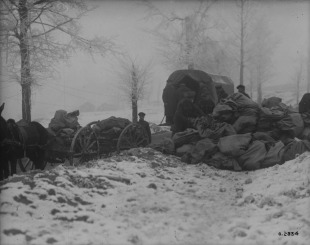“My dad loved the shit out of her and hardly ever knew what to say to her and she loved the shit right back out of him and filled the silent parts of their lives with books and coffee and other things.” (19)
 As children growing up relationships are formed with the people that surround us, they may be our family, friends, or even enemies. Most of these relationships are built on a strong will and dedication, unselfishness, and the act of giving and taking. Some of these relationships are unavoidable. One of the most unavoidable relationships that we attain growing up is not with another human being but rather with our own environment. The relationship with one’s hometown is a difficult conflicting menace as it houses our entire life. In it, it holds the things and people we love as well as those we hate. It is a relationship that just as much as any other helps shape us into whom we are and who we become. It is a covert bond that in our waking life we may not even give a second thought.
As children growing up relationships are formed with the people that surround us, they may be our family, friends, or even enemies. Most of these relationships are built on a strong will and dedication, unselfishness, and the act of giving and taking. Some of these relationships are unavoidable. One of the most unavoidable relationships that we attain growing up is not with another human being but rather with our own environment. The relationship with one’s hometown is a difficult conflicting menace as it houses our entire life. In it, it holds the things and people we love as well as those we hate. It is a relationship that just as much as any other helps shape us into whom we are and who we become. It is a covert bond that in our waking life we may not even give a second thought.
In Miriam Toews’ novel A Complicated Kindness, the protagonist Nomi Nickel is made aware of this special relationship throughout her story. For much of the story she regales the reader with anecdotes of her embarrassment and at times detestation of her hometown of East Village, Manitoba until the final pages when she is struck with a sort of epiphany that opens her eyes to what her town has offered her. Through out most of the novel the reader is guided to believe that Nomi will one day leave her hometown and with it the inevitable dead end that it provides. While Miriam Toews leaves her future up the reader I’d like to argue that Toews uses the ideas of rebellion, abandonment, and fantasy in order to show that Nomi Nickel ultimately remains in East Village at novel’s end.
True to the character of Nomi is the need for rebellion against what she sees as unfair and unjust. As is typical of teenagers, the rebellion against their parents is something of a rite of passage and yet for Nomi her rebellion is never aimed towards her parents but instead the fundamentalist views and actions of the despotism-like Mennonite church. Nomi speaks openly to her teacher explaining that what she wants is “to be [herself], [she] just want[s] to do things without wondering if they’re a sin or not. [She] want[s] to be free” (48). Like in all rebellions a need for freedom is the ultimate goal and Nomi’s is no different. Nomi makes note that the sex, drugs and rock and roll is not what she most desires but the ability to do what she wants without living in a world of perpetual punishment. Nomi seeks emancipation from fear which she views as the backbone that supports fundamentalist views. Later in the passage Nomi states that “[she] want[s] to know what it’s like to be forgiven by another human being and not have to wait around all [her] life anxiously wondering if [she’s] an okay person or not” (48). Clearly Nomi has conflicting views with church and at the end of the novel it can be assumed that Nomi stays in part with keeping her rebelling ways by refusing a personal diaspora away from East Village and thus rebelling against Mennonite tradition. As well as by remaining in East Village she offers to her town what has never been offered to her, that of forgiveness. Through this forgiveness for the separation of a family Nomi is released from the chains of fundamentalist practises and through this act of love and compassion enters the personal freedom she so longed for.
Within the relationship with our environment there is the relationship that we have with other people, our friends and family. For Nomi these relationships are invaluable to her. The bulk of the novel is built around the connections that Nomi has at present as well as those that she had in the past. Her family in particular are the most important thing for her. However, these relationships are forever tested and doomed from the beginning. The novel is strewn with imagery of the loss of blood as seen when Nomi is kicked in the face and cut in the mouth as well as the fact that Nomi’s first period “started the day after Trudie left” (4). These instances of blood loss foreshadow and accentuate the impending separation of family that Nomi encounters. This separation is a common theme for Nomi as she is constantly abandoned by the people who she loves and trusts most. She is left alone by her family, betrayed by her boyfriend and confidant, and her best friend is sent away to a mental institution. This abandonment haunts Nomi’s life as she is in constant question as to “why didn’t she take me with her” (192)? This question, coming much later in the story, highlights the implications of being left behind. Nomi is scarred by this question. She is desperate for love from the people that are not there. As a child she believes that “the entire purpose for the Nickel Family [is] [t]hat we remained together for all eternity” (17). Nomi’s beliefs are of course dashed with the eventual division of the family and so Nomi is alone with her thoughts of an idyllic heaven where the family all come together. The only thing that Nomi has not been abandoned by is her hometown; it has remained a constant for her, she knows what it is and it she finds some kind of solace in its reliability.
Finally, Nomi is a character who is really lost within her own imagination and dreams. The novel itself reads like a dream quickly shifting from one memory to the next without pause. Nomi constantly distorts her perception with alcohol and marijuana and makes references to dreams and flashbacks throughout the novel. The most striking reference to her dreams comes at the end as she reflects “the stories that I have told myself are bleeding into a dream, finally, that is slowly coming true. East Village has given me the faith to believe in the possibility of a happy family reunion someday. Is it wrong to trust in a beautiful lie if it helps you get through life” (245-46). Through this statement Nomi admits that she has once again fashioned her own story of what becomes of her family and through this imagination she is able to cope because she knows a happy reunion out in the real world is unlikely. And so Nomi is unable to release herself from the house that she grew up in and the town that, like a giant glass jar, contains all of her memories because within these memories Nomi is able to find peace and certainty in coming back together with Trudie, Tash, and Ray and whoever else has left her throughout her life.
Though it is difficult to wade through the constant contradictions unleashed by the sixteen year old Nomi Nickel, it is evident that the town of East Village has played an important role in her life offering her a constant of reliability whether for the good or for the bad, and the landmarks that lay within this desolate town play as a trigger for a way back to a time of happiness, warmth and childhood innocence and simplicity. Nomi states that she is “not a fan of fantasy…I dream of escaping into the real world” (6) and yet she constantly delves into fantasy, wishing to live with Lou Reed in New York City’s East Village repeatedly dismissing the reality around her. Nomi is a child who says one thing and then wants another like all children and this emphasizes that she is not really sure what she wants or where she wants to go but she knows for right now she wants to continue living in this city of “fantasy” because it is here that she can re-live the love and kindness that had been taken from her. Nomi makes many references to her difficulty with endings and by living with her memories she won’t have to worry about seeing an ending through.
I highly enjoyed this novel. I found it especially intriguing the way that Nomi is essentially haunted by nostalgia. This young girl who has her whole life ahead of her is stuck, trapped, with a longing to go back. It’s a funny phenomenon not usually associated with teenagers and it certainly evokes a sadness in the reader. Great book.
Rating … 7.5/10
Advertisements Like this:Like Loading...




